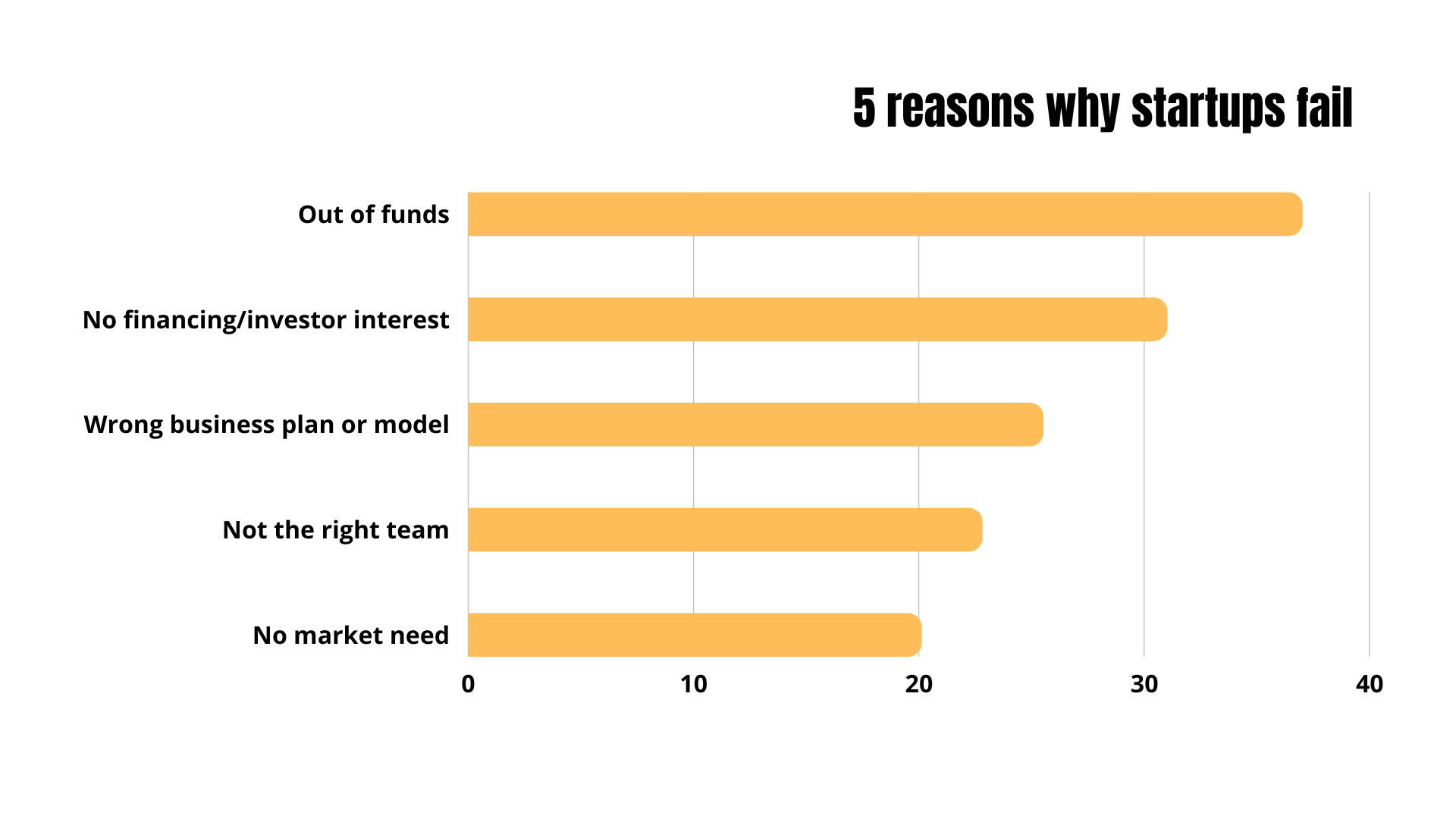Starting a business is no easy feat, and the journey of a startup is often fraught with challenges that can lead to failure. As an experienced entrepreneur with over twenty-five years in the industry, I have encountered numerous success stories, but I have also learned valuable lessons from the failures. In this blog post, we will delve into the top five reasons why startups fail and discuss actionable strategies to avoid these pitfalls. Understanding these key factors is essential for aspiring entrepreneurs to increase their chances of success in the competitive business landscape.
Lack of Persistence – The Fifth Biggest Reason
One of the fundamental traits of a successful founder is persistence. Many startups falter due to a lack of persistence, as building a thriving business requires unwavering dedication and resilience. While some may perceive successful startups as overnight sensations, the reality is that behind every triumph lies years of relentless effort and dedication. It is crucial to set realistic expectations and prepare for the long haul, as building a successful business is akin to running a marathon, not a sprint.
Pro Tips to Avoid Lack of Persistence
- Set Realistic Expectations: Understand that success does not come overnight and prepare yourself for the long haul.
- Embrace the Journey: Acknowledge that failure is a possibility, and persistence is key to overcoming obstacles and reaching your goals.
Premature Scaling – The Fourth Challenge to Overcome
Premature scaling has been identified as a significant cause of startup failure, often triggered by the pressure to grow rapidly following a successful funding round. However, scaling a business too quickly, before it is adequately prepared, can lead to significant setbacks and financial strain. It is crucial to ensure that the business is ready for expansion and that growth is sustainable and aligned with the company’s overall vision and capabilities.
Pro Tips to Avoid Premature Scaling
- Exercise Caution After Funding Rounds: Avoid the temptation to expand rapidly immediately after securing funding.
- Focus on Sustainable Growth: Ensure that growth aligns with the company’s capabilities and market demand to avoid unsustainable expansion.
Broken Founding Team – The Third Hurdle to Overcome
A dysfunctional founding team can spell disaster for any startup. Discord among co-founders often leads to conflicting visions, mismanagement, and an overall lack of cohesion within the organization. Establishing clear roles and responsibilities, fostering open communication, and nurturing a diverse team dynamic are crucial to the success and longevity of a startup.
Pro Tips to Avoid a Broken Founding Team
- Establish Clear Roles and Responsibilities: Define each co-founder’s responsibilities and align them with the company’s objectives.
- Foster Open Communication: Encourage open dialogue and constructive discussions to address any conflicts or issues promptly.
Bad Timing – The Second Hurdle to Navigate
Timing plays a pivotal role in the success of a startup. While being a first mover in a market may seem advantageous, entering too early or too late can pose significant challenges. Being too early may result in an underdeveloped market, whereas entering the market too late can lead to intense competition. Finding the opportune time to introduce your product or service is crucial for achieving sustainable growth and market penetration.
Pro Tips to Overcome Bad Timing
- Strive for Strategic Timing: Aim for a balanced approach, neither too early nor too late, to capitalize on market opportunities effectively.
- Emphasize Superior Execution: Focus on delivering a superior product or service that outshines competitors, even if you enter the market later.
No Product-Market Fit – The Leading Cause of Failure
The ultimate challenge for any startup is to find the elusive product-market fit. This critical aspect ensures that there is a demand for your product or service at a price point that customers are willing to pay. It is imperative to continually assess and refine your product offering to meet market demands and customer preferences. Without a solid product-market fit, even substantial funding can ultimately lead to the demise of a startup.
Pro Tips to Achieve Product-Market Fit
- Prioritize Product-Market Fit: Allocate resources to understanding and fulfilling market demands, ensuring your product meets consumer needs.
- Learn from Feedback: Actively seek customer feedback and adapt your product offering to meet evolving market demands effectively.
By addressing these common reasons for startup failure and implementing the recommended strategies, aspiring entrepreneurs can navigate the challenges of building a successful business. Learning from the mistakes of failed startups and proactively incorporating these insights into your entrepreneurial journey can significantly enhance your chances of creating a sustainable and thriving business.

